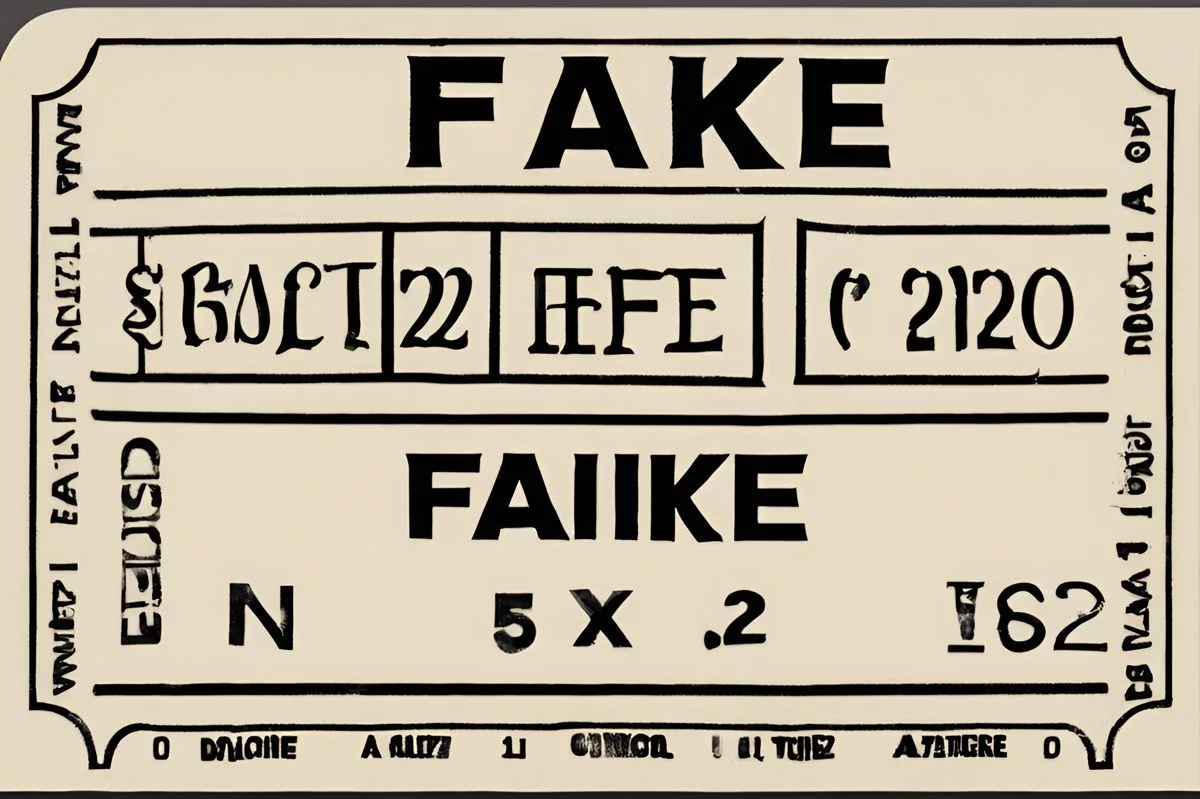Taylor Swift’s UK tour has been hit by ticket fraud, with at least 3,000 fans being duped into buying fake tickets, resulting in over £1m being stolen from them, according to Lloyds Bank. The fraudulent schemes have shown a 158% increase from the previous year, with an average victim loss of £332. These scams mostly originate from Facebook, with unofficial groups offering tickets at bargain prices or claiming to sell entry to sold-out events at exorbitant rates. Fans are advised to use official ticketing sites and to pay by credit or debit card for added security.
The rising trend of concert ticket fraud is a growing concern in the UK, with at least 3,000 innocent fans being duped into buying fake tickets for Taylor Swift’s UK tour alone. The fraudulent schemes have resulted in over £1 million being stolen from fans, with an average loss of £332 per victim. Social media platforms like Facebook have become a fitting channel for such harmful activities, making it crucial for fans to stick to reliable, authorised platforms for ticket purchases to ensure they are genuine.
In the polished and glamorous universe of pop music, Taylor Swift is an undeniable phenomenon, magnetising thousands of devoted fans to her live shows. Yet amid this shimmering spectacle, a sinister pattern of concert ticket fraud is emerging. These fraudulent schemes take advantage of fans’ enthusiasm and thirst to see their idol perform live. As Swift gears up for her UK tour this year, there has been an alarming surge of such fraudulent schemes, leading to a swath of disheartened fans and empty bank accounts.
A Snapshot of the Ominous Scenario
Major British financial institution, Lloyds Bank, brought attention to this disconcerting reality in a media briefing on Wednesday. Since July, at least 3,000 innocent fans, lured by the magic of live performances, have been duped into buying fake tickets. The negative impact of this fraud is not just limited to the number of victims. It has also resulted in over £1 million being siphoned off into the pockets of these swindlers.
Scrutinising the available data unveils insightful trends. Each defrauded fan, on average, was duped out of £332, although, in some cases, the losses crossed the £1,000 mark. A whopping 90 percent of these deceitful transactions originated from beguiling ads or posts, mostly on Facebook. The platform’s enormous user base and the inherent trust amongst its users have regrettably made it a fitting channel for such harmful activities.
A Comparative Overview of the Rising Trend
Lloyds Bank pointed out a troubling rise of 158% in concert ticket fraud when comparing the current scenario with the same period from the previous year. While the scams surrounding Swift’s tour are currently under the spotlight, other artists like US singer Beyonce, British band Coldplay, and artist Harry Styles have also been routinely targeted by these fraudulent schemes. Generally, victims across all concert ticket frauds suffered an average loss of £133.
The Modus Operandi and Countermeasures
In addition to the distressing numbers, Lloyds Bank revealed the operating mechanism of these fraudulent activities. Capitalising on Facebook’s extensive reach, numerous unofficial groups were created focusing on Swift’s concerts. These groups attracted tens of thousands of eager fans looking for ticket exchanges. The fraudulent offers frequently surfaced as irresistible deals within these groups or on Facebook Marketplace, the social media giant’s trading platform.
These deceptive schemes usually touted tickets at bargain prices or claimed to offer entry to sold-out events at exorbitant rates. Unsuspecting victims were asked to pay in advance, only to find the scammer disappearing post-payment, leaving the fans without tickets and financially disadvantaged.
In light of this situation, Liz Ziegler, Lloyds Bank’s director of fraud prevention, underscored the vital need for vigilance. “When asked to make payment via bank transfer, especially by a seller discovered on social media, this should instantly sound an alarm,” she warned. She strongly urged fans to stick to reliable, authorised platforms for ticket purchases to ensure they are genuine. She also advised fans to use debit or credit cards for payments on these platforms for additional security.
The Implications and Way Forward
This poignant tale of concert ticket fraud highlights the murkier side of fandom, where enthusiasm for music can easily be manipulated into a weak spot that fraudsters can exploit. As fans globally gather to witness their favourite artists perform live, it underscores the urgent need for robust mechanisms to combat these fraudulent schemes and safeguard the integrity of the live music experience.
1. What is the problem of concert ticket fraud related to Taylor Swift’s UK tour?
Taylor Swift’s UK tour has been hit by ticket fraud, with at least 3,000 fans being duped into buying fake tickets, resulting in over £1m being stolen from them, according to Lloyds Bank.
2. What is the increase rate in fraudulent schemes as compared to the previous year?
The fraudulent schemes have shown a 158% increase from the previous year, with an average victim loss of £332.
3. Where do these fraudulent schemes mostly originate from?
These scams mostly originate from Facebook, with unofficial groups offering tickets at bargain prices or claiming to sell entry to sold-out events at exorbitant rates.
4. What should fans do to avoid falling victim to such fraudulent activities?
Fans are advised to use official ticketing sites and to pay by credit or debit card for added security. They should stick to reliable, authorised platforms for ticket purchases to ensure they are genuine.
5. What are the implications of these fraudulent schemes?
The negative impact of this fraud is not just limited to the number of victims. It has also resulted in over £1 million being siphoned off into the pockets of these swindlers.
6. What is the way forward to combat these fraudulent schemes and safeguard the integrity of the live music experience?
It underscores the urgent need for robust mechanisms to combat these fraudulent schemes and safeguard the integrity of the live music experience. People should remain vigilant and stick to reliable, authorised platforms for ticket purchases to ensure they are genuine.












